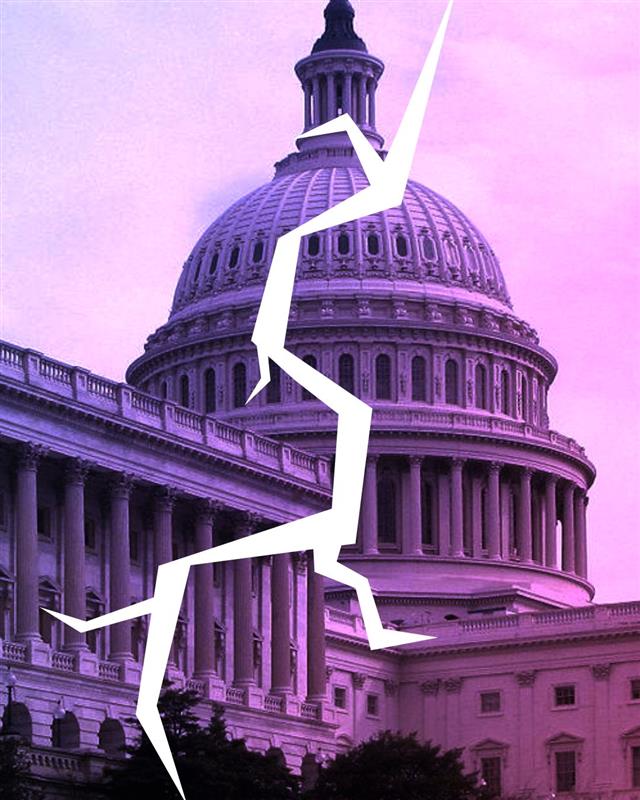A narrowly divided House raises the question: Can independent representatives fix legislative dysfunction?
The big picture
The 118th Congress was one of the least effective in history, plagued by infighting and dysfunction. Now, as the 119th Congress begins, the Republican majority is even thinner, holding just five seats—the slimmest House majority since the Great Depression (CNN). With such tight margins, a small group of independent representatives could wield significant influence over the legislative process. If even five independents were elected to the House, they could reshape the way Congress operates, acting as a counterbalance to partisan gridlock and pushing for reforms that improve governance.
Zooming in
How narrow majorities create chaos
The 118th Congress struggled to function effectively due to its narrow Republican majority. This slim margin allowed individual members and small factions to derail legislative proceedings. The most dramatic example was Rep. Matt Gaetz’s (R-FL) motion to vacate, which led to the ousting of Speaker Kevin McCarthy in October 2023 (AP News). Despite McCarthy’s best efforts to navigate the divisions within his party, it took only a handful of Republican holdouts to throw the House into chaos.
Now, with an even smaller majority in the 119th Congress, Speaker Mike Johnson faces similar challenges. The Republican leadership must appease both the hardliners in the House Freedom Caucus and the more moderate members, leaving little room for bipartisan cooperation.
How independents could change Congress
If just five independent representatives were elected, they could tip the balance of power in the House and act as a stabilizing force in an otherwise dysfunctional system. Here’s how they could make an impact:
- Rule reforms: The House Rules Committee sets the guidelines for how legislation is debated and passed. Independent representatives could negotiate rule changes that improve transparency and accountability. For example:
- Strengthening the existing 72-hour rule, which requires members to have at least three days to review bills before voting (PBS).
- Ensuring that major spending bills include inflation impact assessments, an existing requirement that could be enforced more rigorously under independent influence.
- Breaking party-line voting: The Problem Solvers Caucus, a bipartisan group of 59 lawmakers, was intended to foster cooperation between Republicans and Democrats. However, most members still vote with their parties. Independents, free from partisan loyalty, could vote purely based on policy merits, disrupting the current system. (Axios).
- Focusing on key issues: Independents could push both parties to prioritize the issues that matter most to voters, such as:
- Affordability and inflation, which played a major role in Donald Trump’s 2024 victory (Independent Center).
- Fiscal responsibility, ensuring that deficit spending and national debt are key concerns in all budget discussions.
- Government transparency, reducing the influence of special interests and forcing more open debate on legislation.
Data snapshot
- Congressional approval rating: Over 50% of Americans disapprove of Congress’s performance, according to the Independent Center’s latest poll.
- House Republican majority in the 119th Congress: Five seats—the smallest margin since the Great Depression (CNN).
- Election of Speaker McCarthy (118th Congress): Took 15 rounds of voting, the longest battle for the speakership in 164 years (AP News).
- Current independent representation: Three senators (Bernie Sanders, Angus King, and Kyrsten Sinema), but zero independent representatives in the House.
- Independent voter turnout in 2024: Independents outpaced Democrats by three points, making up 34% of the electorate (Independent Center).
Independent lens
The razor-thin margins in the 119th Congress create both dysfunction and opportunity. While partisan infighting continues to dominate Washington, a small coalition of independent representatives could shift the balance of power and bring much-needed pragmatism to the House.
By leveraging their votes in a closely divided chamber, independents could force bipartisan cooperation, demand greater transparency, and push for rule changes that improve governance. The Problem Solvers Caucus has attempted to play this role, but true independents—without party affiliations—would be even better positioned to challenge the status quo.
The question isn’t whether Congress will remain dysfunctional—it’s whether independent voters will demand change by electing representatives who truly reflect their values.
Subscribe to our newsletter to stay updated on how independent voters can reshape American politics.




%201.jpg)
